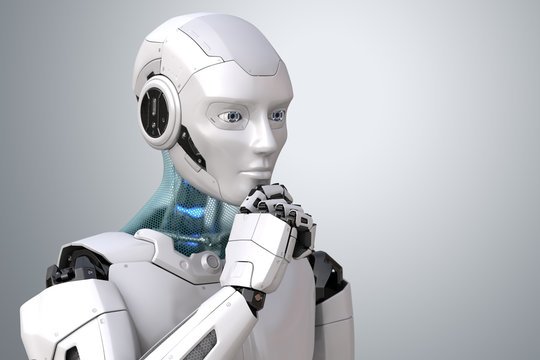Smart Machines: Navigating Disruption and Opportunity
The Information Economy
Dr. Jay Richards discussed some aspects of smart machines and how they are changing the economy. He spoke about some of the disruptions that are occurring as we move out of a service economy and enter an information economy. This transition is happening very quickly, and information technology is starting to define what we do. The information economy includes innovations like fiber optics and digitization, and it is a time of high connectivity and high disruption. Dr. Richard’s argument is that we should not spend our time worrying about being replaced by machines but instead spend time preparing for the information economy and the inevitable disruption that will come with it.
Dystopian vs. Utopian?
Dr. Richards described the two main views on what might happen with automation- the Dystopian view and the Utopian view. These two views take different perspectives, but the element they have in common is that artificial intelligence, smart machines, and robotics will make half of all jobs in ten to twenty-five years. The Dystopian side thinks this will be terrible because humans get value from their work, while the Utopian side thinks this will be great because we can do other things with our time. Either way, the argument is that machines will replace us, but Dr. Richards disagrees with this.
Lump of Labor Fallacy
Generally, smart machines, robotics, and other new technology may make some jobs obsolete. The lump of labor fallacy says there is a fixed amount of work that needs to be done. This fallacy assumes that once machines can do all the work we are currently doing, there will not be any work left to do. However, we have seen in the past that new technology creates new markets and new jobs. We do not have much reason to currently assume that machines taking over currently existing jobs means there will be no work left to do. We cannot limit ourselves to the amount and kind of work that is being done today.
Human Complexities
While it may seem like robots are becoming more and more common, Dr. Richards talked about how complex it actually is to even program a robot with the capabilities of a three-year-old. It is “easy” to program a robot to do one, simple task repeatedly. However, programming robots to perform complex or diverse tasks is much harder and not something that is possible today. The complexities of the human body make it difficult to replicate and program into a robot. This is why physical labor and skilled positions like painters and plumbers will most likely be the last to automate. I think this also proves that humans are not merely machines. There are so many factors and pieces of information required for a three-year-old to pick up a random object and not drop it, break it, or hit themselves.
Preparing for Disruption
The problem with the information economy is that disruption is happening much more rapidly than it has in the past. New technology is replacing and changing jobs continuously, and this will displace people that are in those jobs. The difficult aspect is that those people need the skills to pivot in their careers so that they can continue to provide for themselves and their families. It’s important to have general knowledge, and Dr. Richards emphasized the value in being enumerate, literate, articulate, and punctual. He said beyond this, specializing is good; however, if you must choose either general knowledge or specializing, it is better to gain the general knowledge. This will help prepare us, especially as college students, to be able to pivot from one industry or place to another in our careers. In fact, most people do 5-10 different things throughout their career. Our time will be better spent preparing for disruption in this way, instead of worrying about our jobs being replaced because of disruption.
In Accounting
As an accounting major, the topics of artificial intelligence and smart machines are common throughout my courses. The concern that artificial intelligence will replace our jobs in the accounting profession is prevalent and discussed often. Dr. Richards even specifically mentioned financial reporting in his presentation and warned against entering it. However, financial reporting is a broad term. While some aspects of accounting are straight forward and rules-based, some financial statement line items require estimates and professional judgement. Auditing is similar in that rules and guidelines are present, but auditors also rely heavily on professional judgement.
I do not think that artificial intelligence and smart machines will be able to replicate this. They may replace some jobs and take care of some of the more tedious and monotonous tasks, but they won’t be able to make judgements like auditors can. Dr. Richards mentioned that these new technologies are not conscious, and they only use the data they have to make decisions. While smart machines may replace some accounting positions and increase the effectiveness of other accountants, I do not think they will be able to replicate the complexities of professional judgement required in the accounting profession.
